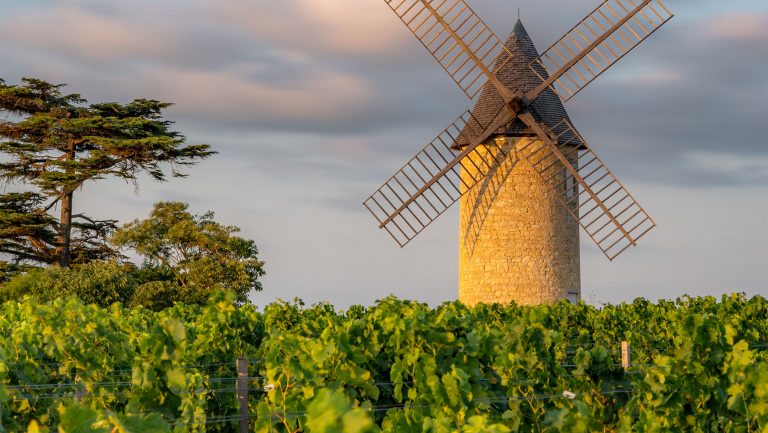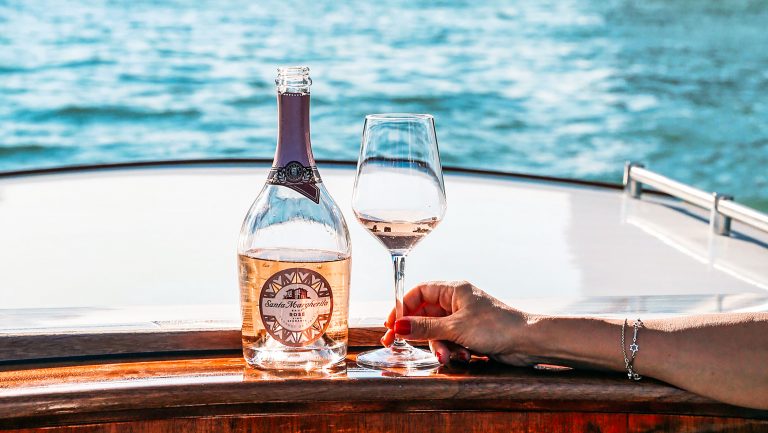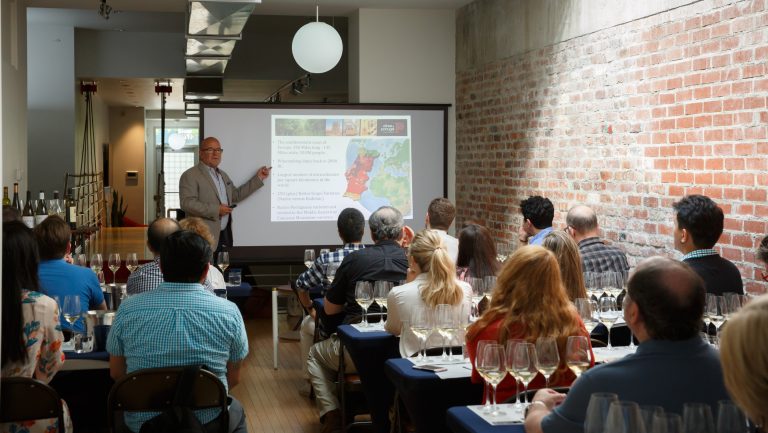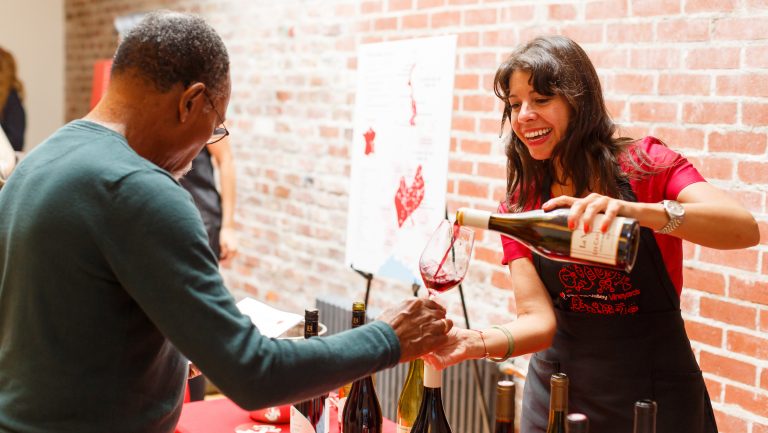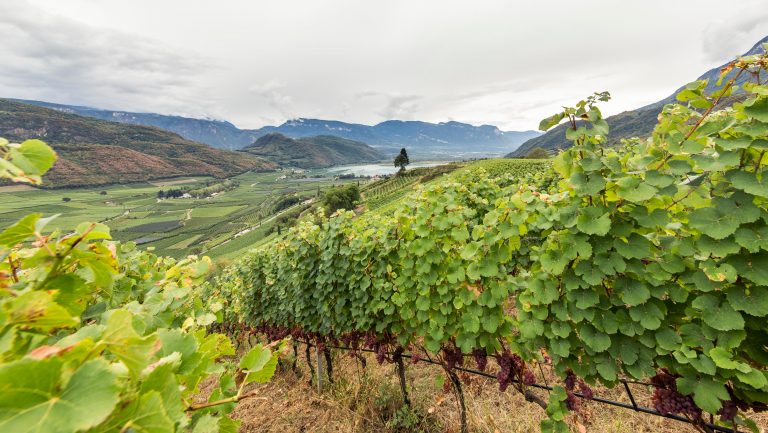This advertising content was produced in collaboration with our partner, Les Vins du Médoc Bordeaux.
The Médoc is home to Bordeaux’s most prestigious red wines. The Atlantic Ocean moderates its temperatures and feeds into the Gironde estuary, which runs alongside this region. Cabernet Sauvignon and Merlot thrive here, favoring its gravel and clay soils respectively.
Vintage variation is nothing new for this maritime region; however, extreme weather events, which were once a rarity, have become more common, and it’s clear Médoc vignerons are now experiencing the effects of climate change firsthand. They are adapting by pruning later in order to protect vines from frost, changing canopy management to shade vines during heatwaves, and selecting drought resistant rootstocks when planting new sites. They are also trying to address the root of the problem by doubling down on their commitment to sustainability.
“Ecological awareness is part of the everyday lives of many winegrowing families who live and work year-round on the land they cultivate,” says Carole Vidal, the director at Conseil des Vins du Médoc. “It is in their interest to take care of it.”

Don’t miss the latest drinks industry news and insights. Sign up for our award-winning newsletters and get insider intel, resources, and trends delivered to your inbox every week.
Almost 90 percent of vineyards in the region are cultivated according to environmentally sound practices. With so many vineyards already on this path, the Médoc is now looking to incorporate sustainability into AOC guidelines.
“Eventually, several appellation organizations (organismes de défense et de gestion des AOC) are looking at integrating environmental certifications into the appellations’ rules,” explains Vidal. Doing so will increase the region’s resilience and help ensure its wines are available for generations to come. Until then, these initiatives are being spearheaded by some individual châteaux. SevenFifty Daily spoke to some of these local leaders in sustainability, who are finding innovative solutions to complex problems.
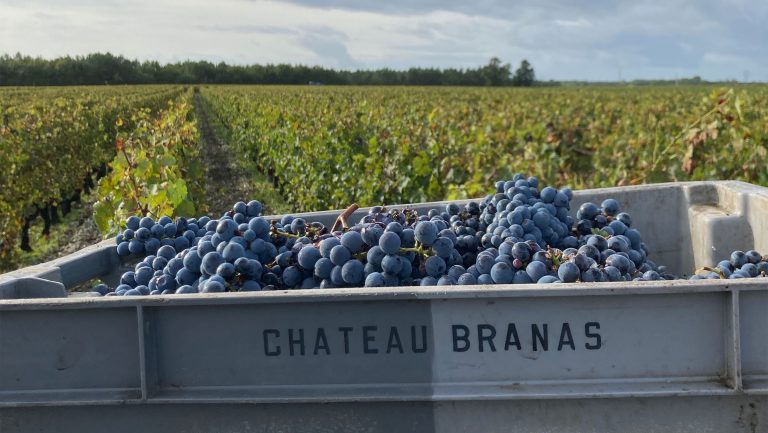
Château Branas Grand Poujeaux
The complexity and depth of the wines of Château Branas Grand Poujeaux can be attributed to the unique environment of Moulis-en-Médoc. Its soils are a microcosm of the Médoc and it boasts a high amount of biodiversity. Small forests are interspersed amongst vineyard blocks, home to bat colonies that feast on pesky vineyard insects. When Justin Onclin purchased the 17-hectare estate in 2002, he immediately set about reconnecting the château with its natural environment.
“We stopped using pesticides and herbicides and replaced them by working the soils mechanically and only using natural fertilizers, like sheep manure,” says Arjen Pen, the general manager of Château Branas Grand Poujeaux.
Their profound respect for their terroir led them to pursue and ultimately obtain Haute Valeur Environnementale (HVE) III certification in 2018. HVE is a three-tiered environmental certification that encourages producers to protect biodiversity, improve water management, and cut out synthetic pesticides, herbicides, and fertilizers throughout their estate. For tier three, producers are also audited against industry and global sustainability indicators. The process takes a minimum of three years and requires engagement from everyone at the estate.
“Unlike other certifications, which only look at products used in the vineyard, the HVE looks at the whole production chain in wine, including how you treat your winery wastewater,” Arjen elaborates. “We liked this holistic view and how it corresponded to our philosophy of sustainable farming.”
Not one to rest on their laurels, Château Branas Grand Poujeaux is working to capture rainwater and reduce their overall water usage. They are also leading corporate and social responsibility initiatives via their Bordeaux Cultivons Demain program, a new, collective approach to implementing change. They plan to imbue environmental and social sustainability throughout their organization with the goal of achieving external certification by 2024.
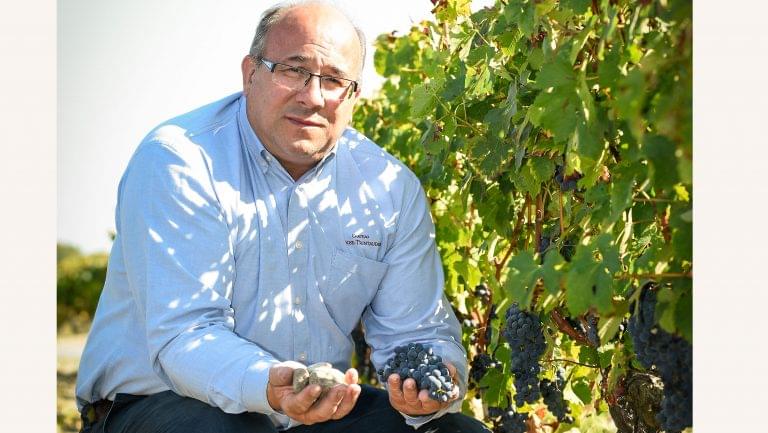
Château Larose-Trintaudon
Château Larose-Trintaudon lay fallow for decades before it was restored in the 1980s. It has since regained its prestige, and is now a Cru Bourgeois Supérieur. In the process they eliminated herbicides, now recycle 70 percent of their waste, and have lightened their bottles and cases to reduce their carbon footprint. As a result of their commitment to sustainability, they’ve received HVE III and Terra Vitis certification.
This ethos of humility and respect at the château informs everything they do, from how they manage their vineyards in the Haut-Médoc to the way their workers are treated. Social sustainability is often forgotten, but improving the well-being of workers, consumers, and communities is key to achieving an equitable and sustainable future.
“A growth strategy only makes sense if you consider the impact on your environment and all stakeholders involved,” says chief executive Franck Bijon. “It is in this way that we find meaning in the production of our wines and the relationships with our customers.”
The school of viticulture and wine is a great example of this in action. Started by Château Larose-Trintaudon and its peers as part of the collective Responsible Vineyards initiative, the school partners with local government groups and training organizations to provide oenology and viticulture training. “The vineyard school has proven very useful to inspire new vocations and train people directly on the properties and teach them the skills needed for the specific estate. The vineyard school also reveals important soft skills and encourages positive attitude in the workplace,” says Bijon.
Students spend three months in the field with instructors before beginning a fifteen month apprenticeship program. At the end of the program, they are recruited to work at one of the châteaux provided they have passed their exams. The school has been a boon to the region, which is in the thralls of a labor shortage.
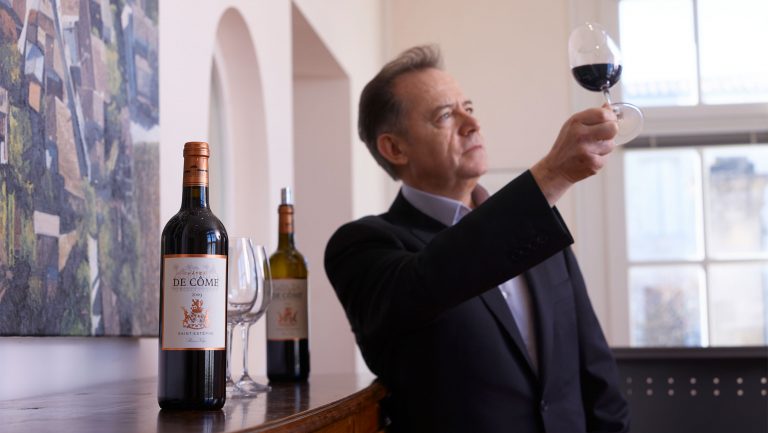
Château de Côme
This small, family run estate in Saint-Estèphe was purchased by Baron Maurice Velge in 1997. His son, Guy Velge, manages the estate alongside winemaker José Bueno, formerly of Philippe de Rothschild, and oenologist Eric Boissenot, who has consulted for several premier and second crus classés. In 2018, Château de Côme became the first certified organic producer in Saint-Estèphe.
To some, maritime climates may seem ill-suited to organic viticulture, but this isn’t the case. Organic farming in the Médoc may differ from more arid regions, but the commitment to environmentally friendly practices is equally resolute. As the first to transition to organic viticulture in their appellation, Château de Côme had to develop techniques that worked best for their site. Over the years, they carried out several trials, refining their approach as they went.
“[Switching to organic viticulture] was a matter of mindset and responsibility,” says Bueno. “Preservation of the health of our staff, our neighbors, respect for the well-being of fauna, flora, water, the microbial life of our beautiful terroir and nature in general as well as the world of insects.”
They now hold HVE III and are sharing their learnings with other châteaux in the region “at every opportunity during discussions or professional meetings,” so they too can transition to organic viticulture. “We value our practices in the vineyard, our vinification process and our maturation method and we encourage all professionals to follow this example,” Bueno says. “We are completely satisfied when we taste our wines, which present a real authenticity and a bright fruitiness.”

Dispatch
Sign up for our award-winning newsletter
Don’t miss the latest drinks industry news and insights—delivered to your inbox every week.


